Amazon bans number plates as illegal supply found
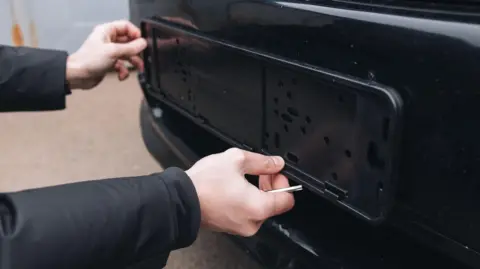 Getty Images
Getty ImagesOnline retailer Amazon is banning the sale of car number plates on its platform after a BBC London investigation exposed they were being illegally supplied.
The BBC found seven companies on the platform were selling plates without checking customers' documents and establishing their legal entitlement to the plate.
It is illegal for UK companies to supply number plates without physically seeing documents such as a driving licence or V5 document.
Amazon said all seven products from the companies the BBC investigated had been removed and sales of all number plates would cease apart from novelty plates.
The online retailer said removing the number plates was not an immediate process, and it would take a while for it to take down the items being sold by third party vendors.
Illegal supply allows easy access to number plates, officially known as vehicle registration plates, which criminals can then use to clone.
Number plate cloning involves placing the copied plate on a similar looking vehicle. All fines and penalties are then sent to the innocent owner of the original vehicle.
'Hugely troubling'
Last year the BBC revealed a 64% increase over three years in the number of fines cancelled due to car cloning incidents in London.
The BBC bought the number plates on Amazon from seven suppliers who topped the listing on the day of purchase. All the number plates ordered were delivered without the BBC having to produce any documents.
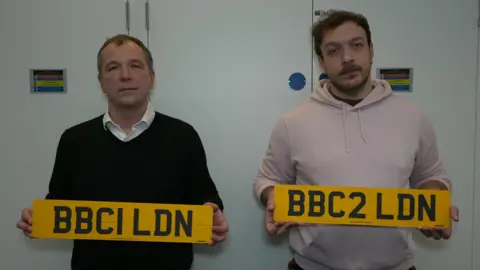
The BBC found:
- Four firms (Defence Line, Domo Corporation, SLS UK Holdings, Plastic Services) delivered plates without requesting any documents
- Two firms (Official Plates, Meena Supplies) said ID was necessary but subsequently dispatched the plates without requesting documentation
- Just one business (Reg Locker) followed up with a text message asking for documentation to be sent to an email address. When the BBC ignored the request, the plates were sent and arrived a few days later
Ruth Cadbury, Labour MP for Brentford and Isleworth and chair of the Transport Select Committee, said the BBC's findings were "hugely troubling".
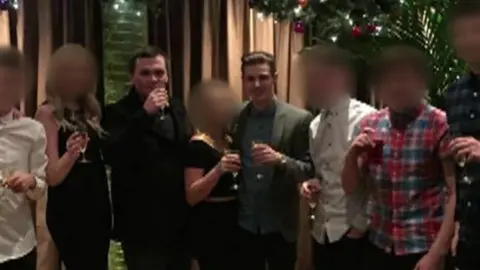 Facebook
FacebookOne of the firms found selling plates without checking documentation was Wiltshire-based SLS UK Holdings Ltd, which stated it was "DVLA registered" and sold "road legal" number plates.
The company is run by Jordan Daykin, who appeared aged 18 on Dragons' Den in 2014 and secured £80,000 from Deborah Meaden for a DIY company he is no longer involved with. Mr Daykin refused to comment on the BBC's findings.
Plastic Services is another that supplied the BBC number plates without the legally required checks.
Also based in Westbury, Wiltshire, it is listed on the DVLA register of suppliers as operating from the same address as SLS UK Holdings Ltd.
Macorley Bivens, the director of Plastic Services and a former business associate and acquaintance of Mr Daykin, declined to respond to the BBC's questions about its findings when approached for comment both by letter and in person, claiming they required more information to respond.
Defence Line Ltd and Domo Corporation Ltd both delivered plates with no request to see documents. Defence Line did not respond to our request for comment, while Domo Corporation refused to comment saying they needed more information to respond.
Two other companies, Official Plates Ltd and Meena Supplies Ltd, said ID was necessary but both dispatched the plates without any further requests. Official Plates Ltd refused to comment.
In a statement, Meena Supplies Ltd said: "We take compliance with the law very seriously and are committed to upholding all legal and regulatory requirements for the supply of number plates."
Reg Locker Ltd followed up our purchase with a text message requesting documents to be sent to an email address or via WhatsApp. The BBC ignored the text and the plates were delivered a few days later.
The company said: "Temporary staff have clearly not followed up on the text message requesting the compliance documentation.
"All temporary staff will be retrained in order that no such oversight ever occurs again."
'Like a criminal'
From 2021 to 2023, about 90,000 penalty charge notices were written off due to number plate cloning.
Stella Roscoe from Leatherhead, Surrey, learned her car was cloned when she received a police letter saying she was being prosecuted for fleeing the scene of an accident in Ilford. Mrs Roscoe says she has never been to Ilford.
"If you get a letter through the door to say you're going to be prosecuted, it makes you feel awful," she said.
"You feel like a criminal and I couldn't understand how this could be because I knew I wasn't there."
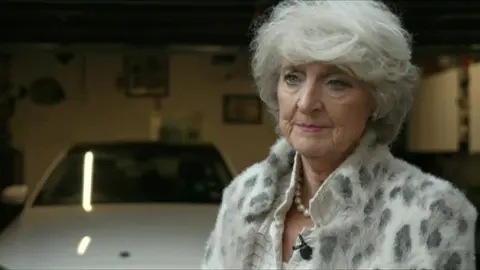
At the time of the incident, her car was parked in her garage in Leatherhead while she was at a nearby event with 10 other people.
The Metropolitan Police accepted the car's plates had been cloned, however seven months on the insurance claim against her is ongoing.
Ms Roscoe said she would like plate cloning to carry a prison sentence.
Rob Laugharne, managing director at Hills number plates, one of the biggest suppliers in the country, said he was not surprised by the BBC's findings.
"That online world of plate supply has unfortunately exploded to a point where it's got out of control because the regulations to do with plate supply are out of date," he said.
"The regulations are insisting that you still have to physically see original documentation."
Hills is running a pilot scheme to demonstrate that digital copies of ID can be used to prove a customer is entitled to a number plate, something other government agencies already do.
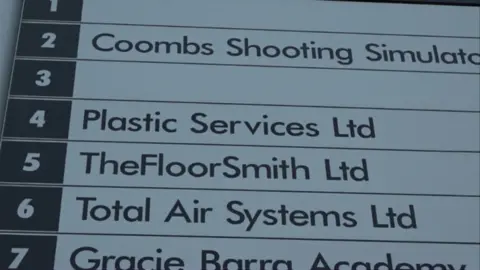
The DVLA said: "We work with the police and Trading Standards to take action against suppliers who do not comply with the law.
"A legitimate supplier will always ask to see ID and entitlement documents before selling a number plate. Where this doesn't happen, members of the public can report this directly to their local Trading Standards."
Ms Cadbury said the DVLA had told the Transport Committee that the Home Office was due to release a report into the issue of car cloning towards the end of last year.
"We're still waiting for the outcome of that report, our understanding is a lot of the work was done, I can't believe the recommendations are too tricky to adopt," said Ms Cadbury.
The Home Office said: "The cloning and defacing of number plates affects road safety and provides cover for criminals. We are working with the police, the DVLA and other partners to crack down on these crimes.
"We began work on a new Road Safety Strategy, the first in over a decade, which aims to reduce road deaths and prevent related crime. More details will be shared in due course."
Listen to the best of BBC Radio London on Sounds and follow BBC London on Facebook, X and Instagram. Send your story ideas to [email protected]
